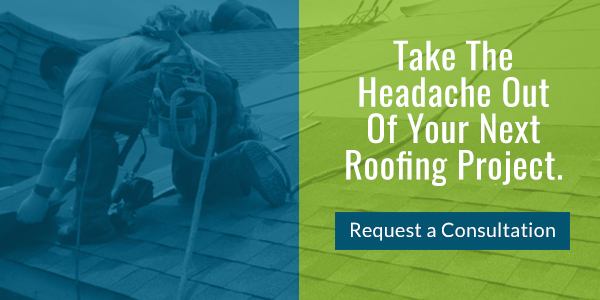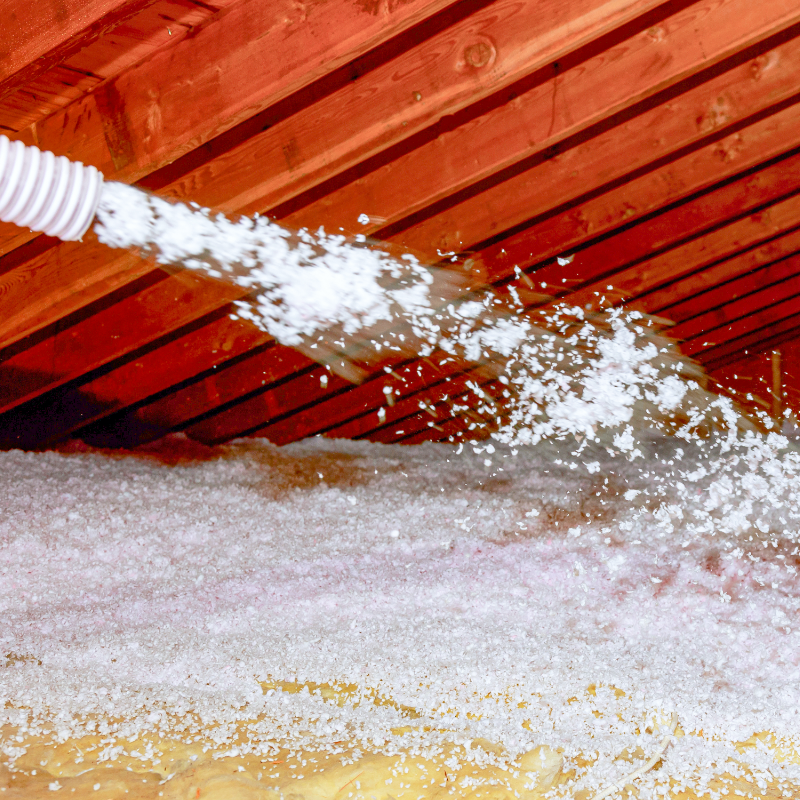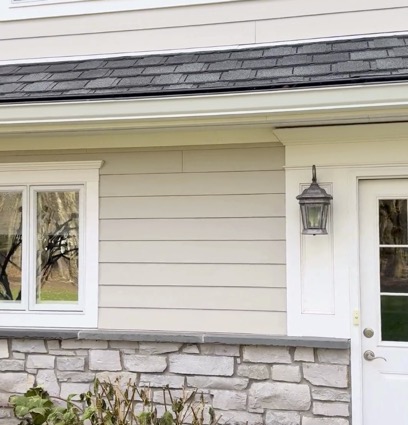A proper New Jersey roof must support its own weight, the weight of a possible second layer of shingles and heavy snow/ice accumulations. Ideally, it will also have the strength to resist large branches that might strike it.
Roof Loads
A professional engineer (PE) calculates roof loads. Calculations determine the spacing and weight of the rafters and other framing. The weight of the roof itself is one factor.
In New Jersey, local codes prohibit re-roofing over more than one layer of shingles. The combined weight of multiple layers is a key reason for this enforcement. Some older roofs may still have three or even four layers of shingles on them. When you add the weight of extra shingles to the weight of heavy snow, a roof collapse becomes a serious potential threat.
Again, the roof must be strong enough to support all the snow and ice that accumulate during New Jersey winters. A cubic foot of water weighs 62.4 pounds. Ice weighs slightly less at 57.2 pounds per cubic foot. Heavy, wet snow can weigh more than 20 pounds per cubic foot. Light, fluffy snow is less of a concern. It can weigh less than a quarter of that. However, what happens when a foot of powdery snow absorbs heavy rain that occurs days later? And what happens when water and slush converge in the valleys of a roof? There are a variety of ways that roof loads can become a concern in the winter.
Roof Pitch
Roof pitch impacts how much snow a roof can support. A roof with a lesser pitch doesn’t shed snow as well. A roof with a three-pitch or less is one example. A three-pitch roof slopes three inches every foot. This pitch might also be expressed as “3:12” or “3 in 12.” Those with lower-pitched roofs should be vigilant about heavy snow accumulations. This is particularly true if the roof’s substructure has weakened over the years due to leaks, dry rot or even termites.
You still want to be vigilant even if you have a higher-pitched roof with deeper valleys. Beware of uneven snow loads. After a storm, steep gables may remain bare while valleys get buried under feet of snow. Remember, snow blows around on roofs as it does on the ground. Think about that deep ditch on the side of the road. Blowing snow fills the ditch just like it fills the valleys on your roof.
Roof Texture
Some roofing materials shed snow much better than others. The granules on asphalt shingles form a textured surface that tends to grab and retain snow. By contrast, snow tends to slide off of metal roofs. That’s why you’ll see far more metal roofs in mountainous regions where extreme snowfalls are common. In fact, metal roofs are so slick they are often outfitted with snow guards. These horizontal pieces of metal allow the snow to slide off a little at a time, for safety reasons.
Professional Snow Removal: Play it Safe
Heavy accumulations of snow cause everything from leaks to collapses. Professional snow removal is the answer. DIY snow removal can damage shingles, flashing, gutters and more. You don’t want the “cure” to be worse than the “disease.” Shovels, ice picks and snow rakes damage roofs when used in the wrong way. With everything frozen solid, it’s easy to get too aggressive about hacking at the ice, for example.
When heavy snow and ice threaten your roof, it’s best to trust the professionals. A massive ice dam is even trickier to remove. These dams maintain an icy grip on the shingles below. The area around a massive ice dam is a particularly dangerous place in which to operate.
The worst NJ winters deliver an insidious mix of snow, rain and ice. Consider the following scenario. A blizzard dumps a foot of snow on roofs across northern New Jersey. A couple of days later, the snow absorbs two inches of heavy rain. Soon thereafter, a sleet storm strikes, adding even more to the load on your roof.
“But my roof can handle it,” you think. Architects who design roofs for this part of the country are mindful of heavy snow loads. Much of the time they are over-engineered, if anything. However, roofs may weaken due to aging or improper installation. Either can lead to leaks, and undetected leaks can weaken the substructure. Sometimes, this leads to a collapse.
A Roof Collapse: It’s Complicated
Why take chances? Consider professional snow removal. In the summer, a simple residential re-roofing project usually takes a day or two. A roof collapse in the middle of winter is much more disruptive. A major roof repair or replacement is a multi-step process. First, there’s often a permitting process to contend with. The local building inspector ensures that the work is code-compliant. Second, all the damaged material requires removal by safety-trained roofing professionals as damaged rafters, studs and timbers must go. Third, new framing and decking must connect to the undamaged parts of a home.
Contact Us Today
The CRS team is well acquainted with how hard winters are on NJ roofs. We’ve been serving northern NJ homeowners since 1977. We are a full-service roofing contractor that’s factory-certified by both Owens Corning and GAF. When storm damage occurs, we’ll propose the appropriate repair or replacement. We will assemble key information to support your insurance claim if necessary.
CRS also offers other roofing services. These additional services include periodic roof inspections, routine maintenance, repairs and pressure washing. We support the local communities of northern New Jersey. We stand ready to answer your roof-related questions. For prompt, friendly and professional help, please contact us today.






